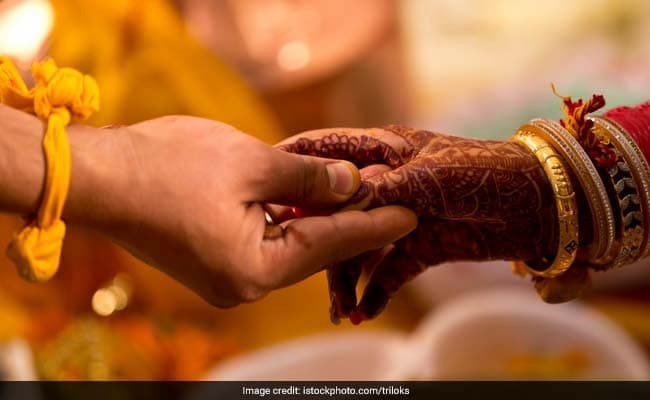2024-02-28 07:25:54

Woman said her father had booked a marriage hall (Representational)
New Delhi:
The Supreme Court recently dismissed a cheating case against a man who did not go through with a wedding after talks with the woman’s family.
“There can be multiple reasons for initiating a marriage proposal and then the proposal not reaching the desired end,” Justices Sudhanshu Dhulia and Prasanna B Varale said while cancelling a case against Raju Krishna Shedbalkar.
Raju Krishna Shedbalkar had approached the Supreme Court against a 2021 Karnataka High Court order that held him guilty of cheating under Section 417, which entails a jail term of up to one year or fine, or both.
“Time and again, this court has reiterated that in order to make out an offence under cheating the intention to cheat or deceive should be right from the beginning. By no stretch of imagination, this is even reflected from the complaint made by the informant,” the Supreme Court said.
A case was registered against Raju Krishna Shedbalkar, his brothers, sister and mother based on a complaint filed by a woman who alleged that he had cheated her by not marrying her.
The woman alleged that her family had found Mr Shedbalkar suitable for her, and both had started talking to each other.
She said her father had also paid Rs 75,000 to book a wedding venue, but she learnt that Mr Shedbalkar had married someone else.
The Karnataka High Court had dismissed the case against all the accused, except Mr Shedbalkar. The High Court noted since he had “induced the woman’s father to book a marriage hall, there is prima facie material which makes out a case”.
Overturning that decision, the Supreme Court said there was no evidence to prove that the man had any intention to cheat the woman. “It is possible theoretically yet in order to prove an offence of cheating in such cases prosecution must have reliable and trustworthy evidence in order to first prosecute such a case. There is no such evidence before the prosecution and therefore no offence under Section 417 is also made out,” the judges said.
Supreme Court,Cheating,Marriage
Source link
![]()



